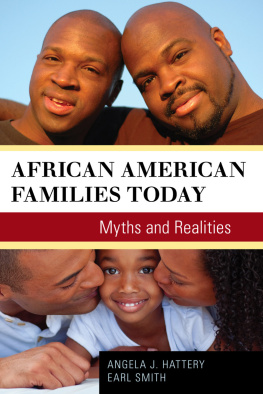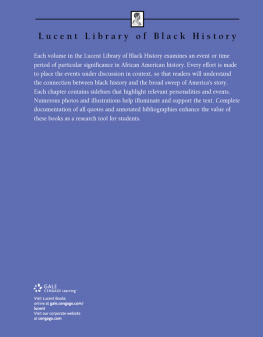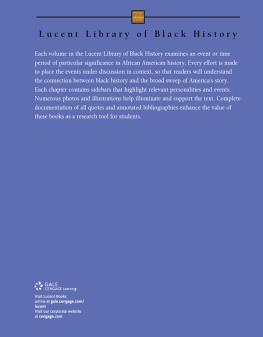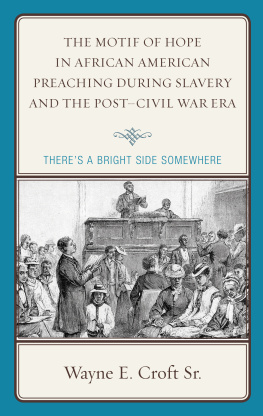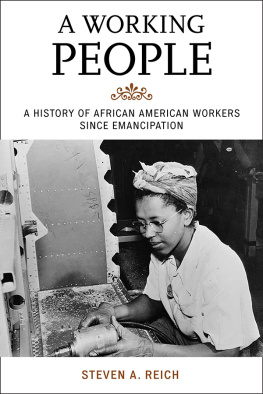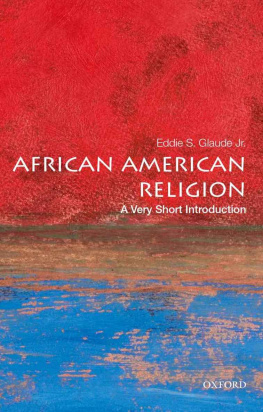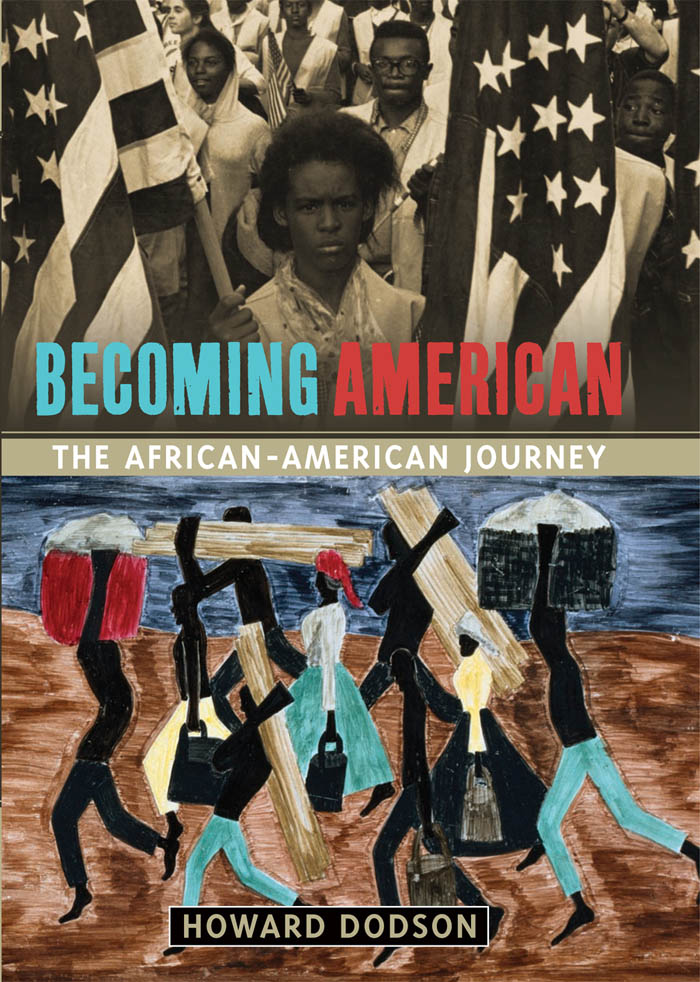BECOMING
AMERICAN
BECOMING
AMERICAN
The African-American Journey

HOWARD DODSON
Director, Schomburg Center for Research
in Black Culture, New York Public Library
WITH
CHRISTOPHER MOORE &
ROBERTA YANCY

New York / London
www.sterlingpublishing.com
STERLING and the distinctive Sterling logo are registered trademarks of
Sterling Publishing Co., Inc.
Library of Congress Cataloging in Publication Data
Dodson, Howard.
Becoming American : the African-American journey / Howard Dodson ; with Christopher Moore & Roberta Yancy.
p. cm.
Includes bibliographical references.
ISBN 978-1-4027-5407-4
1. African Americans--History. 2. African Americans--History--Sources. 3. African Americans--Ethnic identity. 4. African diaspora. I. Moore, Christopher Paul, 1952- II. Yancy, Roberta. III. Title.
E185.D623 2009
973'.0496073--dc22
2008036171
2 4 6 8 10 9 7 5 3 1
Published by Sterling Publishing Co., Inc.
387 Park Avenue South, New York, NY 10016
2009 by Howard Dodson
Please see picture credits page for image credits and permissions.
Distributed in Canada by Sterling Publishing
c/o Canadian Manda Group, 165 Dufferin Street
Toronto, Ontario, Canada M6K 3H6
Distributed in the United Kingdom by GMC Distribution Services
Castle Place, 166 High Street, Lewes, East Sussex, England BN7 1XU
Distributed in Australia by Capricorn Link (Australia) Pty. Ltd.
P.O. Box 704, Windsor, NSW 2756, Australia
Manufactured in the United States of America
All rights reserved
Sterling ISBN 978-1-4027-5407-4
For information about custom editions, special sales, premium and corporate purchases, please contact Sterling Special Sales Department at 800-805-5489 or specialsales@sterlingpublishing.com.
Frontispiece: On July 28, 1917, approximately 8,000 black Americans silently marched down Fifth Avenue in New York City in the Silent March, organized by Harlem religious and civic leaders and the NAACP as a protest against lynching, violence, and racial discrimination.
CONTENTS

IntroductionBecoming American
The African-American Journey
PART ONE
Timeline of African-American &
Global/African Diasporan History
PART TWO
Key Texts, Literary Works & Records








INTRODUCTION
Becoming American:
The African-American Journey
I majored in social studies and history in undergraduate school and at the masters level. Nevertheless, I was well into the second year of my masters program before I had an opportunity to take my first course dealing with black people. It was a course in African politics offered in the early 1960s as Africa was just beginning to break the bonds of colonialism. I had gone through grade school, junior and senior high, undergraduate school, and a year of graduate school before any aspect of the black experience was offered as a formal part of the curriculum. What I had learned prior to that was what a few conscientious black teachers in the all-black grade school and junior high school in Chester, Pennsylvania, slipped into their courses. Mostly, they taught about black heroes and sheroes like Frederick Douglass, Sojourner Truth, Harriett Tubman, Booker T. Washington, and George Washington Carverblack role models to be emulated. Black history was essentially black biographyhero and shero stories about great black men and women who triumphed over the odds.
Not until I enrolled in the Ph.D. program in black history at the University of California at Berkeley in 1970 did I begin to see the breadth, depth, and impact of the black experience not only in the United States but throughout the world. Almost everywhere one looked in America, the impact of black peoples presence, creativity, laboring activity, and social and cultural imprint was there for all to see. But few saw it and even fewer had studied it. Only a very few had studied as much as I. Over the last thirty-five years or more, I have spent my life learning all I could about the black experience and making that knowledge available to the publicchildren and adults, blacks and whites, and all the rest of humankind. This book, Becoming American: The African-American Journey, is a chronological history of African Americans as it has evolved within the context of American and world history.
The African-American experience in the United States had its origins on the continent of Africa. Indeed, all of humankind traces its roots back to Africa. Whether one uses the biblical Adam and Eve or the anthropological Lucy as a point of origin, Africa is recognized as the place where human beings originated as a species. Ancient Egypt, the most highly developed ancient civilization, called itself Kemet, which means Land of the Blacks. Nevertheless, well into the twentieth century it was widely believed in the Western world that black people had no history or culture. Twentieth-century scholarship has largely refuted these myths, but Americans have not been introduced to the facts.
Indeed, most Americansincluding far too many Americans of African descenthave little or no knowledge of the central role that people of African descent have played in the making of history both here in the United States and throughout the western hemisphere. Even less is known about the presence and role of African peoples in the history of all humankind. And except for an occasional televised documentary film or serious movie on black themes, the majority of American people have had few opportunities to discover the richness and diversity of the black experience in America or compare it with the black experience in other parts of the world.
Too often, the telling of the story of African Americans begins with the transatlantic slave trade, and the whole of our history has too frequently been organized around our victimization during the eras of slavery and racial segregation. The triumphs of the civil rights movement, especially the role of Martin Luther King Jr., are chronicled, as are the recent challenges facing blacks in urban America. The centrality of blacks self-initiated activities in the making of African-American history is not always apparent, and their active role over the last two hundred plus years in defining and redefining the very concept of America and Americans is usually not fully appreciated.
Becoming American: The African-American Journey


